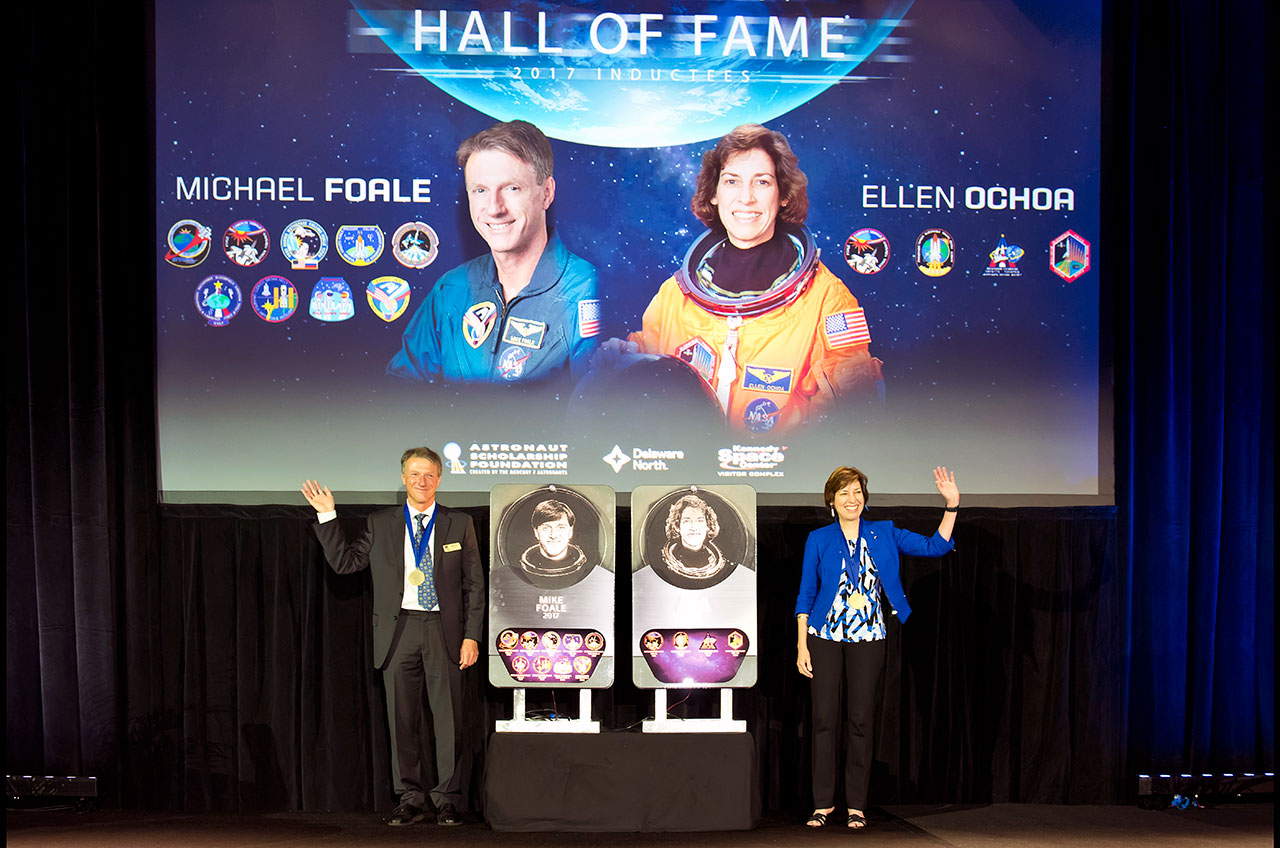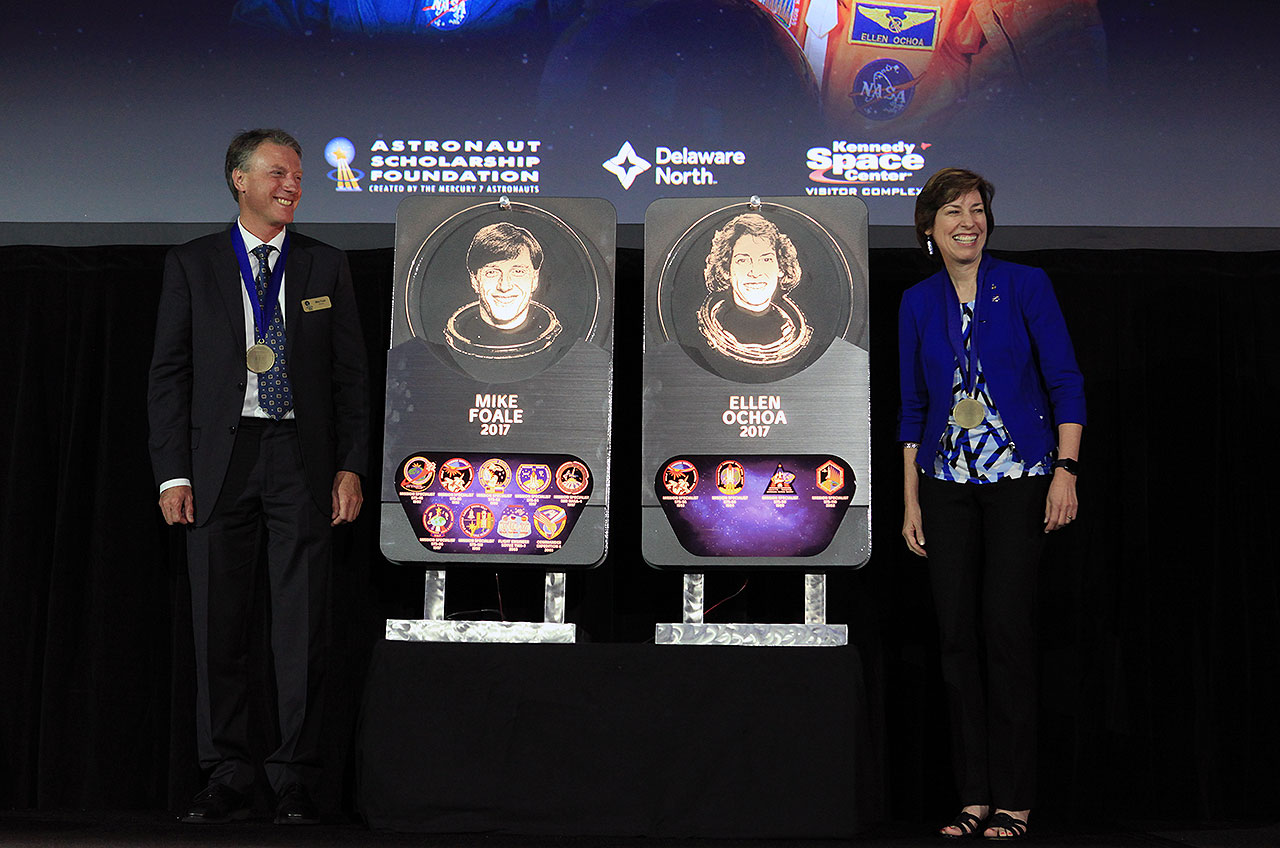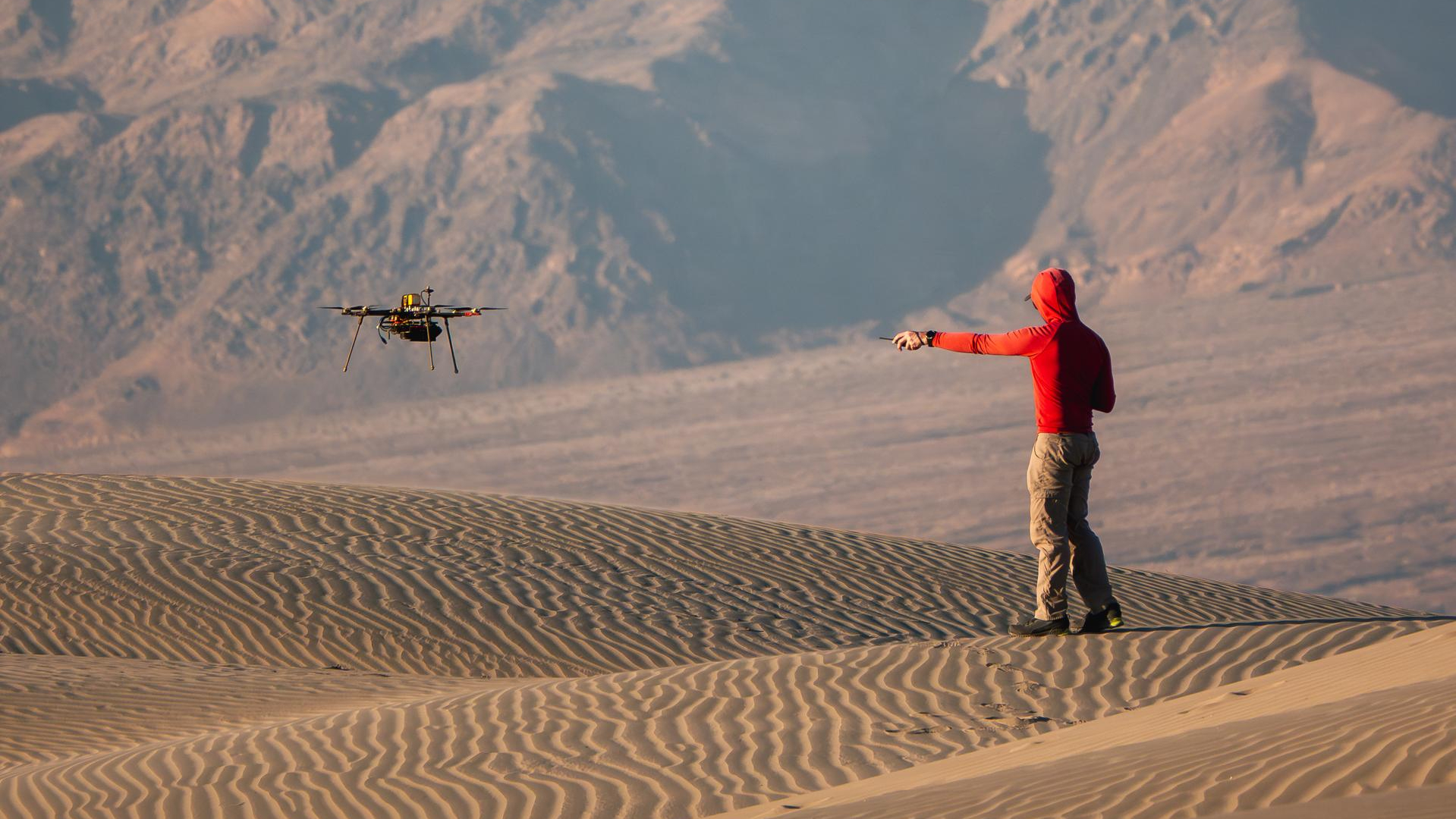Space Shuttle Crewmates Foale and Ochoa Enter Astronaut Hall of Fame

Nearly 25 years after they flew into space together, Michael Foale and Ellen Ochoa entered the U.S. Astronaut Hall of Fame on Friday (May 19) as inductees.
Standing under the retired space shuttle Atlantis, a vehicle on which they both flew missions, Foale and Ochoa were celebrated at the Kennedy Space Center Visitor Complex in Florida in front of an audience of their fellow astronauts, family members, friends and the general public.
"I was so happy to hear he and I were going to be inducted together," said Ochoa, referring to her 1993 space shuttle Discovery crewmate Foale. "He'd already had one mission and he passed along all kinds of helpful information that helped a rookie like me know where to focus and hopefully not be too surprised when the flight happened — because being surprised in space is really not a good thing, as [he] found out." [Space Shuttle Atlantis By the Numbers: A 25-Year Legacy]
Ochoa, who was the first Hispanic woman to fly in space, logged more than 40 days on her four missions, studying solar activity and helping to build the International Space Station. Foale, who holds dual citizenship, was the first Brit to spacewalk and at one time held the record for the most time in orbit by an American.
Foale spent more than a year off Earth, almost 374 days, on his five shuttle missions and one Russian Soyuz flight, conducting solar observations, servicing and upgrading the Hubble Space Telescope and becoming the only astronaut to live on both the Russian Mir and the International Space Station. It was during his 1997 stay on the Russian orbiting outpost that he learned firsthand how a surprise in space could redefine the mission.
"That mission I thought was just going to be a ho-hum for me research mission, but it wasn't," said Foale, describing his experience surviving the impact of an uncrewed supply spacecraft with the Mir station. "The Progress collision, the depressurization, the loss of power and attitude control — I described it as tumbling — followed by various attempts of recovery, turned that mission into the most eventful, and, I think to some extent due to the camaraderie I developed with [cosmonauts] Vasily Tsibliyev and Alexander Lazutkin, was one of the most rewarding experiences in a weird and odd way, even though so much trouble befell that mission."
Foale's background as an astrophysicist enabled him use the stars to gauge the space station's spin rate, providing key information to ground controllers and advise his crew mates on how to use the Mir's thrusters to bring the orbital complex under control.
Breaking space news, the latest updates on rocket launches, skywatching events and more!
"His cool under stress was brilliantly demonstrated," stated Charles Bolden, Foale's STS-45 crewmate and the former NASA Administrator, while inducting Foale into the Hall of Fame on Friday.
Foale, who just returned from the U.K. mourning the death of his mother weeks earlier, said that he was grateful she knew he was to be honored before she died.
"It's a great honor for me from my predecessors, my peers and my colleagues that are here today and around me. So thank you, really, on behalf of my mom, and from me for bestowing that to me," Foale said.
Ochoa was inducted by Michael Coats, who preceded her as director of NASA's Johnson Space Center in Houston.
"Whether it was the time critical and complex operations during her four space shuttle missions or testifying before Congress or deliberating over difficult personnel decisions, Ellen has always thoughtful, well-informed and decisive," said Coats, who entered the Hall in 2007. "Her outstanding leaderships skills has benefited our space program during very turbulent times, and hopefully will continue doing so for many years to come."
Foale and Ochoa comprise the 16th group of space shuttle astronauts to enter the Hall, and their addition brings the total number of inductees to 95.
"Today's induction is even more meaningful as this the first class of inductees to join the Astronaut Hall of Fame since its beautiful home opened last November right here at this facility," said Therrin Protze, Kennedy Space Center Visitor Complex's chief operating officer, referring to the attraction "Heroes and Legends, featuring the U.S. Astronaut Hall of Fame, presented by Boeing."
In addition to the public ceremony, they were celebrated at a gala hosted by the Astronaut Scholarship Foundation on Saturday.
"It is a thrill to be welcomed into the Hall of Fame," Ochoa said. "While the spotlight today is on astronauts, we know that we are simply the ones who represent everyone in the NASA community who have made NASA's achievements possible, and that the biggest role we play throughout our careers, and actually throughout our lives, is inspiring the next generation, who'll go on to accomplish more than we can imagine.”
Watch a video of the U.S. Astronaut Hall of Fame induction ceremony at collectSPACE.
Follow collectSPACE.com on Facebook and on Twitter at @collectSPACE. Copyright 2017 collectSPACE.com. All rights reserved.

Robert Pearlman is a space historian, journalist and the founder and editor of collectSPACE.com, a daily news publication and community devoted to space history with a particular focus on how and where space exploration intersects with pop culture. Pearlman is also a contributing writer for Space.com and co-author of "Space Stations: The Art, Science, and Reality of Working in Space” published by Smithsonian Books in 2018.
In 2009, he was inducted into the U.S. Space Camp Hall of Fame in Huntsville, Alabama. In 2021, he was honored by the American Astronautical Society with the Ordway Award for Sustained Excellence in Spaceflight History. In 2023, the National Space Club Florida Committee recognized Pearlman with the Kolcum News and Communications Award for excellence in telling the space story along the Space Coast and throughout the world.


